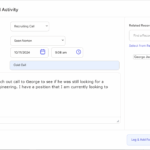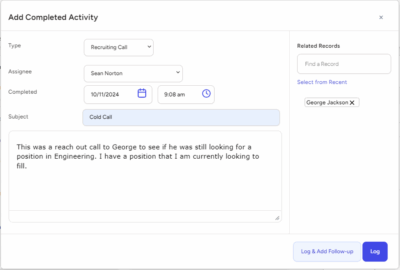Background check software is a powerful tool for employers to ensure that they are hiring the best candidates for their organization. Background checks can help verify a candidate’s education, employment history, criminal record, and other relevant information. In this article, we’ll explore what background check software is, how it works, and some best practices for using it.
What is background check software?
Background check software is an online tool that allows employers to conduct comprehensive background checks on potential hires. The software typically includes features such as automated searches, data analysis, and reporting. Background check software can help employers ensure that their candidates are qualified and have a clean record.
How does background check software work?
Background check software works by collecting and analyzing data from various sources, including public records, criminal databases, and credit reports. The software can also conduct searches on social media platforms and other online sources to gather additional information on candidates.
The software uses algorithms and machine learning to analyze the data and provide employers with a comprehensive report on the candidate’s background. The report typically includes information such as employment history, education, criminal record, credit history, and any other relevant information.
Background check software best practices
Background checks are an essential part of the recruitment and hiring process. Background check software can help employers make informed hiring decisions and ensure that they are bringing on the best candidates for their organization. However, it is crucial to follow best practices when using background check software to protect candidates’ privacy and ensure fair hiring practices.
Below are some of the best practices for using background check software to recruit and hire top talent.
Obtain consent from candidates: Before conducting a background check, employers must obtain written consent from candidates. The consent form should explain what information will be collected, how it will be used, and who will have access to it. Candidates should have the opportunity to ask questions and understand what the background check entails. Employers should provide clear and concise explanations to candidates and maintain transparency throughout the process.
Comply with legal requirements: Employers must comply with legal requirements when conducting background checks. The Fair Credit Reporting Act (FCRA) outlines the requirements for employers when conducting background checks. Employers must provide candidates with a copy of the report and give them the opportunity to dispute any inaccuracies. Employers must also follow state and federal laws related to background checks. Employers should consult with legal counsel to ensure that their background check process complies with all applicable laws.
Determine what information to collect: Employers should determine what information is relevant to the job and necessary for making a hiring decision. Collecting too much information can be invasive and potentially discriminatory. Employers should only collect information that is necessary for the job and directly related to job performance. It is essential to be mindful of privacy laws and protect candidate information.
Use a reputable provider: Employers should use a reputable provider when conducting background checks. The provider should have a proven track record and be able to provide accurate and reliable information. Employers should conduct research and read reviews before choosing a provider. It is also essential to ensure that the provider complies with all applicable laws and regulations.
Review the report carefully: Employers should review the background check report carefully before making a hiring decision. The report should be reviewed for accuracy and completeness. Employers should give candidates the opportunity to dispute any inaccuracies and take steps to correct any errors. It is also essential to verify the information provided by the candidate, such as employment history and education, to ensure that it is accurate.
Follow fair hiring practices: Employers should conduct background checks as part of a fair and unbiased hiring process. Employers should be mindful of unconscious bias and ensure that background checks are conducted consistently and without discrimination. Background checks should be conducted on all candidates equally, regardless of their race, gender, age, or other protected characteristics. Employers should also ensure that the information obtained from background checks is used to make fair hiring decisions.
Protect candidate privacy: Employers must protect candidate privacy when conducting background checks. It is essential to store candidate information securely and only share information on a need-to-know basis. Employers should also be transparent about how candidate information will be used and ensure that it is only used for the purpose of making a hiring decision. It is also essential to comply with data privacy laws, such as the General Data Protection Regulation (GDPR), when conducting background checks.
Background check software can be a powerful tool for employers to make informed hiring decisions and ensure that they are bringing on the best candidates for their organization. However, it is crucial to follow best practices to protect candidates’ privacy and ensure fair hiring practices. Employers should obtain consent from candidates, comply with legal requirements, determine what information to collect, use a reputable provider, review the report carefully, follow fair hiring practices, and protect candidate privacy. By following these best practices, employers can ensure that they are conducting background checks fairly and effectively.








